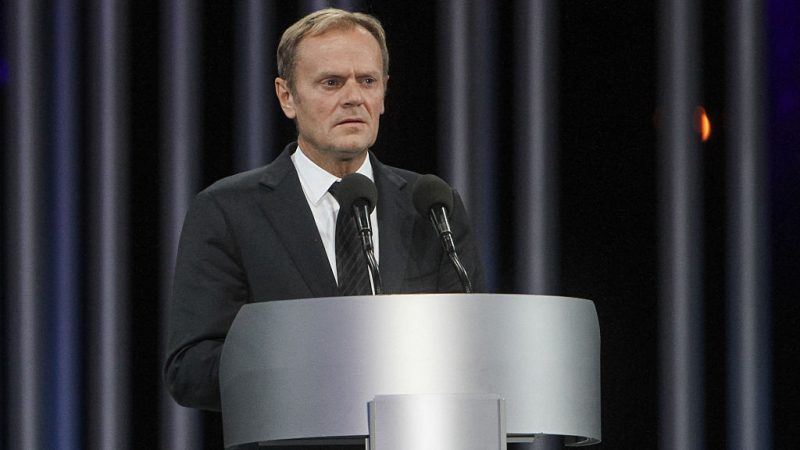
Polish conservative PiS MEP Arkadiusz Mularczyk (ECR) has sent a letter to US President-elect Donald Trump, urging him to back Poland’s demands for Germany to fork out World War Two reparations.
In his letter, Mularczyk congratulated Trump on his recent victory in the US presidential election and stressed the importance of fostering strong US-Polish relations. He also noted the issues he said were “extremely important for Poland”—including efforts to obtain German reparations for World War II, an issue Mularczyk said “has required a just solution for years.”
“Poland suffered huge losses as a result of German aggression, and it is important to develop an international partnership to support Poland in striving for historical justice,” he wrote on X.
In the letter, Mularczyk also stressed that as an MEP, “he focuses on matters of great importance for his country and his compatriots,” such as the war reparations and transatlantic cooperation.
“Here, we count on your support. With your help, our relations will deepen further, and our cooperation will have a positive impact on our part of Europe,” he added.
War reparations claims
Before losing power to a four-party coalition led by now-Prime Minister Donald Tusk (PO, EPP) in December 2023, the PiS government consistently advocated Poland’s reparations claim against Germany, a move that was criticised by the then opposition parties and some European leaders as potentially divisive within the EU.
The PiS has estimated reparations at 6.22 trillion zlotys (€1.35 trillion). This figure, compiled by a Polish parliamentary commission chaired by Mularczyk before his election to the European Parliament, outlines the destruction of infrastructure and suffering that Poland experienced during the war, according to Mularczyk’s committee.
Germany maintains that all war reparations issues have been settled by previous agreements, including with Poland’s post-war communist government. Warsaw, however, argues that these agreements were imposed under Soviet pressure and do not reflect Poland’s current democratic sovereignty or legitimate claims.
During the visit of German Chancellor Olaf Scholz (SPD, S&D) to Warsaw in July, Tusk suggested he would abandon the reparation claims because “in a legal sense, the problem of reparations has been described in decisions and government treaties,” although, “one can draw various conclusions from them.”
For him, the most important are Berlin’s statements confirming the belief that the historic renunciation of reparation claims “does not change the fact of the great loss of people, property and land suffered by Poland as a result of the German invasion,” he said.
PiS-nominated President Andrzej Duda then said he disagreed with Tusk that any Polish authorities had effectively renounced their rights and claims for compensation.
Strengthening stability in Europe
In his letter, Mularczyk also welcomed Trump’s “close cooperation” with Duda, without mentioning the government, as well as the efforts “to strengthen security, economic development and stability in Europe.”
Duda enjoyed warm relations with Trump during his first term as US president, to the extent that he wanted to name a permanent US military base in Poland to be named after him.
Tusk, who was European Council president for most of Trump’s first presidency, did not hide his differences with Trump on several issues, including defence and trade.
Wishing Trump and his vice president-elect JD Vance “a fruitful term,” Mularczyk expressed his confidence that “the Polish-American relationship will blossom” in the next four years.
(Aleksandra Krzysztoszek | Euractiv.pl)

